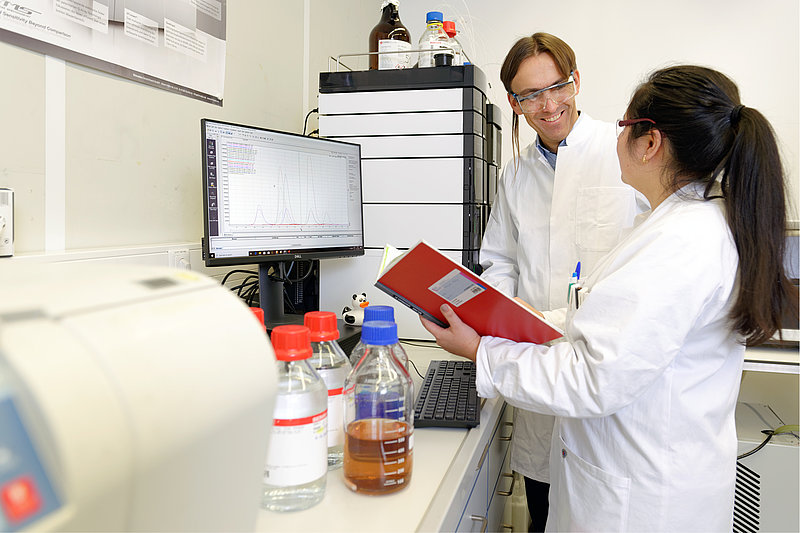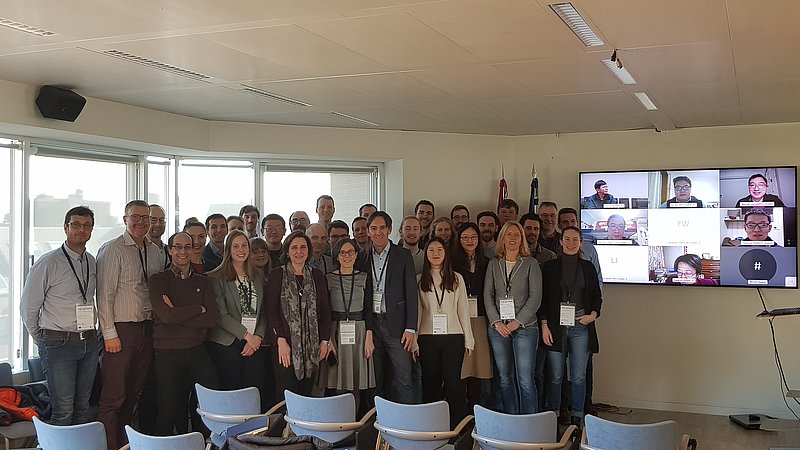We started under difficult conditions. But the results are still impressive. See here what we remember of this very special year.
Three days in Brussels, eleven months of research - and already ten published papers. That’s the conclusion of the MIX-UP year 2020. A successful year - and a very special one. When we, the European partners, were on our way to Brussels at the beginning of February 2020, the Corona virus was already rampant in China. The European Union had banned the entry of our Chinese partners. There was no sign of it in Brussels yet: during the day we met in conference rooms, in the evening we sat together in restaurants. At that time, no one here would have dared to dream what it would be like in Europe just a few weeks later. Either way, the year was marked by completely new research conditions in China as well as in Europe - the exchange now suddenly takes place digitally.
We have listed some milestones for 2020 below:
It was autumn 2019 when we received the great news that our application had been accepted by the EU. A few months later, we found ourselves in Brussels. At the kick-off meeting we were able to get to know each other and discuss our future cooperation. We all completely agree on one thing: "We will find a solution together" - and that is exactly what we want to achieve. Together we are strong to find solutions, whether online or in real life. So far, we have been able to keep our promises.
Transparent and understandable science is almost as important as the research itself. After all, what good is it if no one trusts it? That's exactly why we regularly interview our scientists about their area of expertise. The first to answer our questions was consortium leader and RWTH Professor Lars Blank. In the interview, he gives us an exciting insight into the promising future of bioplastics. Take another look so that next time you won't be standing in front of the supermarket shelf at a loss 😉.
Yes, Corona sucks. It gets on our nerves too. Especially now on holidays. But as we all know, there is something positive in every negative. And this is the lesson we can take from the past months. When, if not now, will we have the opportunity to rethink our consumption of plastic and our use of such a precious resource? The Corona crisis gives some of us the time to question our own habits. In our blog we have given you a few tips to help you live more sustainably. Have you managed to realise your goals?
More and more often we hear about bacteria or mealworms that are able to "eat" plastics. Are they the salvation in the fight against plastic pollution? Some of our MIX-UP scientists have now explained in a recent publication what biotechnology can and cannot achieve. Their assessment is encouraging, but it also shows that they do not take responsibility away from us. In our previous blog article you can read in detail how the future of biotechnology looks at such developments.
Back in April, MIX-UP researchers published a paper on the degradation of PET using a whole-cell biocatalyst. Among many others, this new publication clearly shows the potential of the biotechnological approach with regard to plastic degradation. In it, whole-cell biocatalysts are touted as a great advantage, enabling the production of the required enzyme and the simultaneous degradation of the plastic. How exactly this works and what such a catalyst is, you can read again in our article.
The end-of-life plastics crisis is very present in the research field and even in the public - this benefits the MIX-UP researchers, as they now show in this publication. In particular, they investigated novel pathways for plastic polymers that are difficult to recycle in conventional ways, such as polyurethanes (PU). The scientists propose a biotechnological way to use certain plastics as a carbon source for a defined microbial mixed culture.
Our economy depends on finite resources. Scientists therefore agree that only a circular economy will work in the long term. A successful thought leader in this field is the Irish professor and MIX-UP researcher Kevin O'Connor. A few weeks ago we talked to him about the problems, solutions and advantages of the new approach. Take another look at the interview if you want to know why the roots of the circular economy are in all of us and what you can do small things in your everyday life to accelerate the transformation.
A few weeks ago, scientists got to the bottom of one of the biggest problems in biology: They used artificial intelligence to answer the question of how protein unfolding works. It’s just one of a few successes in the field of biotechnology. Read here in our previous article what 2020 has brought to biology research.
What our partners think about the MIX-UP year 2020
Our partners have experienced 2020 under new conditions. What was different? How were they still able to be successful? We asked some of them for their assessment and successes - this is what came out:
"2020 has been a difficult year for everyone, but at Bioplastech we have seen that the enthusiasm and collaborative energy of the MIX-UP project has overcome the barriers of long distance collaboration. This has allowed us to efficiently work towards achieving our research aims of exploring and evaluating mixed plastic up-cycling technologies."
- Bioplastech
“This year is a very challenging one, pandemic and plastic pollutions. In China, increasing demand has pressed the plastic research and industrial communities to develop biodegradable and/or recyclable plastics. The MIX-UP project comes at the right time to address this global and domestic concerns. The MIX-UP team at Tsinghua is moving toward industrialization of biodegradable poly(3-hydroxybutyrate-4-hydroxybutyrate), short as P34HB, under the NSFC-EU MIX-UP Funding. A 200 cubic meters scale production of P34HB has been achieved. Further progress is expected in the next half year.”
- Tsinghua University (TU)
“Our main success is the development of a tailor-made reactive extraction method for the separation of depolymerization based diamines.”
- Aachener Verfahrenstechnik (AVT)
“In spite of significant challenges in communication and experimental work due to COVID-19 work is well underway and first results on plastic monomer metabolism are very exciting.”
- Forschungszentrum Jülich (FZJ)
2020 - the year when the world (almost) only looked at the Corona virus - showed us once again how important it is to find solutions to our plastic problem now, to build an ecological circular economy and not wait. Cooperation, whether on a small scale, such as within the family, or globally between nations, is crucial to this. We look forward to continuing on this path with this blog in the coming year. What about you?




